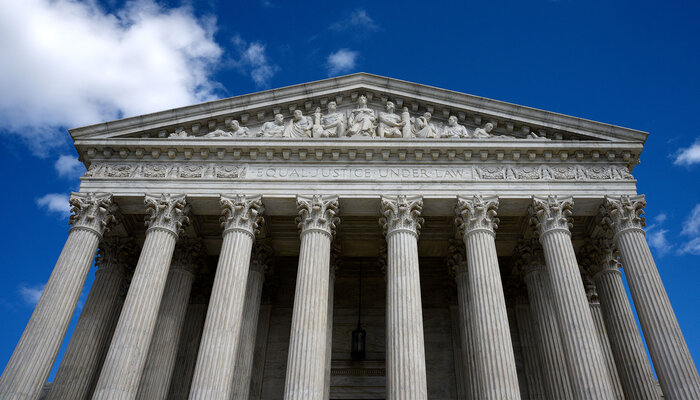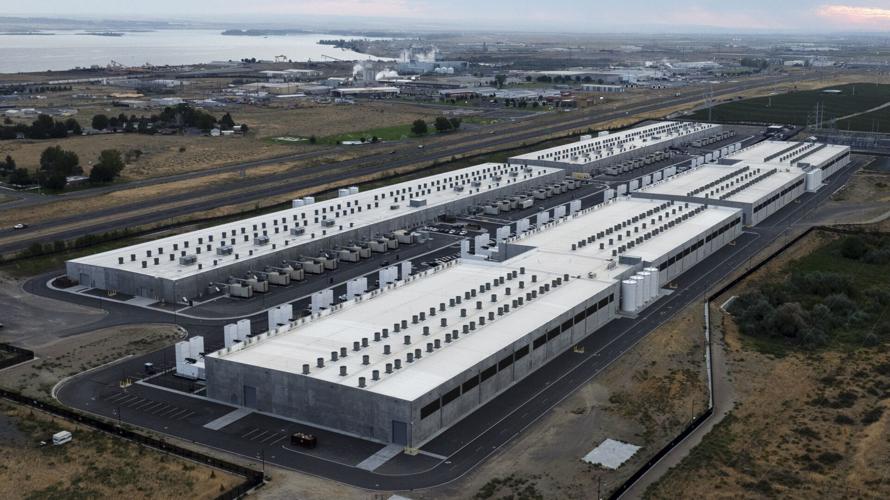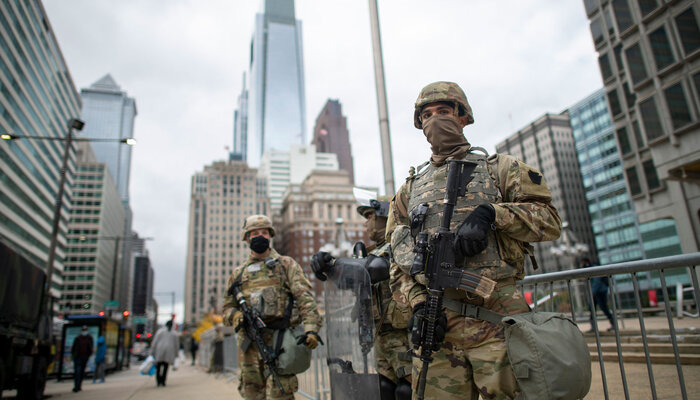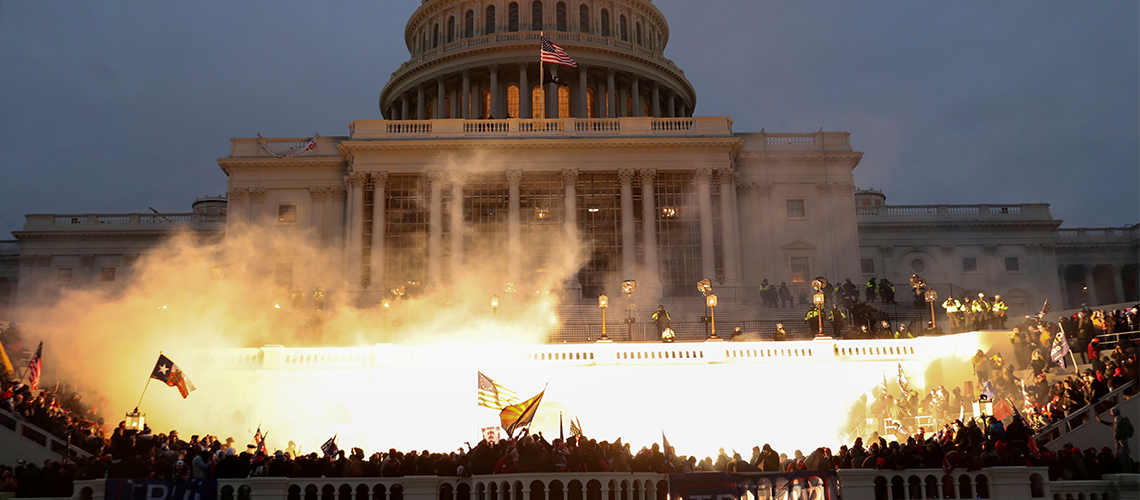
The Role of The Courts Under Trump
In Light of Increasing Supreme Court Decisions Siding With the Executive Branch, What Is the Role of the Courts?
With Trump’s increasing abuse of executive powers and a Congress dominated by the GOP majority, the courts have come to the center of attention as the institution that we hope to depend on to uphold the impartiality and sanctity of law. Despite holding the power of judicial review, recent Supreme Court decisions largely in favor of Trump have made the public question if the highest court is truly committed to its responsibility of upholding the constitution. This brings us to ask: what is the role of the judiciary in this administration if the Supreme Court is not demonstrating the ability to hold the executive branch accountable?
The Shadow Docket
The Trump administration has repeatedly tested the power of the judiciary by issuing executive orders without regard for the law. In response to his unconstitutional actions, federal courts all over the country have issued nationwide injunctions against his executive orders, effectively declaring them illegitimate. In retaliation, Trump has made a wide use of the Supreme Court’s emergency docket, or the shadow docket, reserved for cases in need of immediate judicial decisions, to challenge nationwide injunctions since January.
Trump’s law-defying executive orders and challenges against federal court injunctions through the shadow docket are deliberate tactics to challenge judicial review and to consolidate power. By issuing overreaching executive orders, Trump is forcing the Supreme Court to make increasing use of the shadow docket and make cursory decisions in his favor. In a conservative-majority Supreme Court, shadow docket decisions often lean towards the right, effectively delivering Trump most of his victories without much consideration for constitutionality. Even for cases Trump v. CASA, Department of Homeland Security v. DVD, and McMahon v. New York in which the Trump administration gravely violated the 14th amendment, the due process clause, and effectively dissolved the Department of Education without authorization of Congress, the Supreme Court conveniently sidestepped Trump’s violations and ruled in favor of him.
Such shadow docket decisions are dangerous not only because they are decided summarily without much written judicial reasoning, but also because these decisions undermine federal courts’ abilities to challenge Trump’s abuse of power by issuing broad injunctions. The increasing reliance of the Trump administration on the shadow docket to challenge nationwide injunctions also creates confusion for lower-level US Circuit and District courts as they must decide between following the legal reasoning provided by shadow docket decisions, or the actual principles of the Constitution.
Importance of State Courts
The Trump administration’s overuse of the emergency docket has created a Supreme Court favorable to his orders. However, this doesn’t mean that our court system has no power under this administration. States have constitutions that outline many of the same protections as the US constitution, if not more. State courts have decided in favor of the people and defended many marginalized communities’ rights based on progressive interpretations of the state constitutions. A recent example of a State Supreme Court upholding the rights of the people amidst constitutional rollbacks of rights in the US Supreme Court can be seen in Wisconsin, where liberal dominated Wisconsin Supreme Court struck down a 176 year old abortion ban, outlawing abortion even in cases of rape or incest.
Even as the United States Supreme Court has rolled back decades of precedent and undermined justice and checks and balances by granting Trump powers beyond the limits of the executive branch, our state court system still remains an avenue of defense against tyranny. It is up to our state courts to defend our rights, and it is up to us to elect the state court judges who will stand up for the people.
Emergency Docket Cases and Decisions Since January
| Case | Description | Ruling |
| Trump v. New York | Regarding the suspension of criminal proceedings against Trump in New York State Court. | 5:4 against Trump, denying him a stay of criminal proceedings against him.
Justices Thomas, Alito, Gorsuch, and Kavanaugh dissented, and would grant the application. |
| Department of State v. AIDS Vaccine Advocacy Coalition | Regarding reimbursement to nonprofits and businesses that receive federal foreign assistance funding | 5:4 against Department of State, upholding order requiring the reimbursement to nonprofits and businesses
Justice Alito, Thomas, Gorsuch and Kavanaugh dissented. |
| Department of Education v. California | Regarding the reinstatement of millions of dollars of terminated federal grants. | 6:3 in favor of Trump terminating the federal grants.
Justice Kagan dissents. Justice Jackson dissented, joined by Justice Sotomayor. |
| Trump v. J.G.G. | Regarding blockage of Trump’s enforcement of Alien Enemies Act | 5:4 in favor of Trump, allowing immediate removals under the Alien Enemies Act
Justices Sotomayor, Kagan, Barrett, and Jackson dissenting. |
| Noem v. Abrego Garcia | Regarding US District judge’s order to return Kilmar Armando Abrego Garcia to the US | Affirmed the judge’s order to return Abrego Garcia, but the deadline of the order is no longer effective. |
| US v. Shilling | Regarding Trump’s disqualification of transgender individual from military service | 6:3 in favor of Trump, allowing transgender military members to be disqualified from service
Justice Kagan, Justice Jackson and Justice Sotomayor dissented |
| AARP v. Trump | Regarding the suspension of removal orders for a group of Venezuelan immigrants | 7:2 in favor of AARP and holding the suspension of removal orders.
Justice Kavanaugh filed a concurring opinion. Justice Alito and Justice Thomas dissented. |
| Noem v. National TPS Alliance | Regarding Department of Homeland Security’s Termination of Temporary Protected Status for Venezuelans | 8:1 in favor of Noem’s termination of TPS for migrants.
Justice Jackson dissented. |
| Trump v. Wilcox | Regarding Trump’s removal of Gwynne Wilcox and Cathy Harris from the National Labor Relations Board and Merit Systems Protection Board. | 6:3 in favor of Trump’s removal.
Justice Kagan, Justice Jackson and Justice Sotomayor dissented |
| Trump v. American Federal of Government Employees | Regarding Trump’s large-scale layoffs of federal workers | Emergency docket application withdrawn |
| Noem v. Doe | Regarding DHS’s revocation of parole status to 532,000 non-citizens from Cuba, Haiti, Nicaragua, and Venezuela | 7:2 in favor of Noem and DHS’s revocation.
Justice Jackson and Sotomayor dissented. |
| Social Security Administration v. American Federation of State, County and Municipal Employees | Regarding DOGE access of Social Security Records | 6:3 in favor of DOGE access
Justice Kagan, Justice Jackson and Justice Sotomayor dissented |
| US DOGE Service v. Center for Responsibility and Ethics in Washington | Regarding Freedom of Information Act’s requests for DOGE materials | 6:3 in favor of DOGE, resulting in suspension of order requiring DOGE to turn over materials to FOIA
Justice Kagan, Justice Jackson and Justice Sotomayor dissented |
| Department of Homeland Security v. DVD | Regarding the removal of non-citizens to countries not identified on removal orders (third countries) | 6:3 in favor of Department of Homeland Security
Justice Kagan, Justice Jackson and Justice Sotomayor dissented |
| Trump v. CASA | Regarding nationwide injunctions against Trump’s revocation of birthright citizenship to children of undocumented parents | 6:3 in favor of Trump, striking down nationwide injunction against birthright, but allowing class action lawsuits
Justice Kagan, Justice Jackson and Justice Sotomayor dissented |
| Trump v. American Federation of Government Employees | Regarding executive branch’s plan to initiate large-scale reduction of the federal work force | 8:1 in favor of Trump, clearing the injunction blocking Trump from initiating plans to reduce federal work force
Justice Jackson dissented |
| McMahon v. New York | Regarding reinstatement of the Department of Education employees fired as a part of reduction in force | 6:3 in favor of Trump, allowing the administration to not reinstate employees
Justice Sotomayor, Kagan and Jackson dissented |
| Noem v. Vazquez Perdomo | Regarding whether ICE agents are allowed to racially profile individuals in their arrest operations | 6:3 in favor of ICE, temporarily clearing the injunction blocking the use of racial profiling in ICE arrest operations
Justice Sotomayor, Kagan and Jackson dissented |
| Trump v. Slaughter | Regarding whether Trump should reinstate Democratic Federal Trade Commissioner Rebecca Slaughter, who was fired without cause | 6:3 decision in favor of Trump, allowing the president to temporarily fire a member of the FTC without cause
Justice Sotomayor, Kagan and Jackson dissented |


